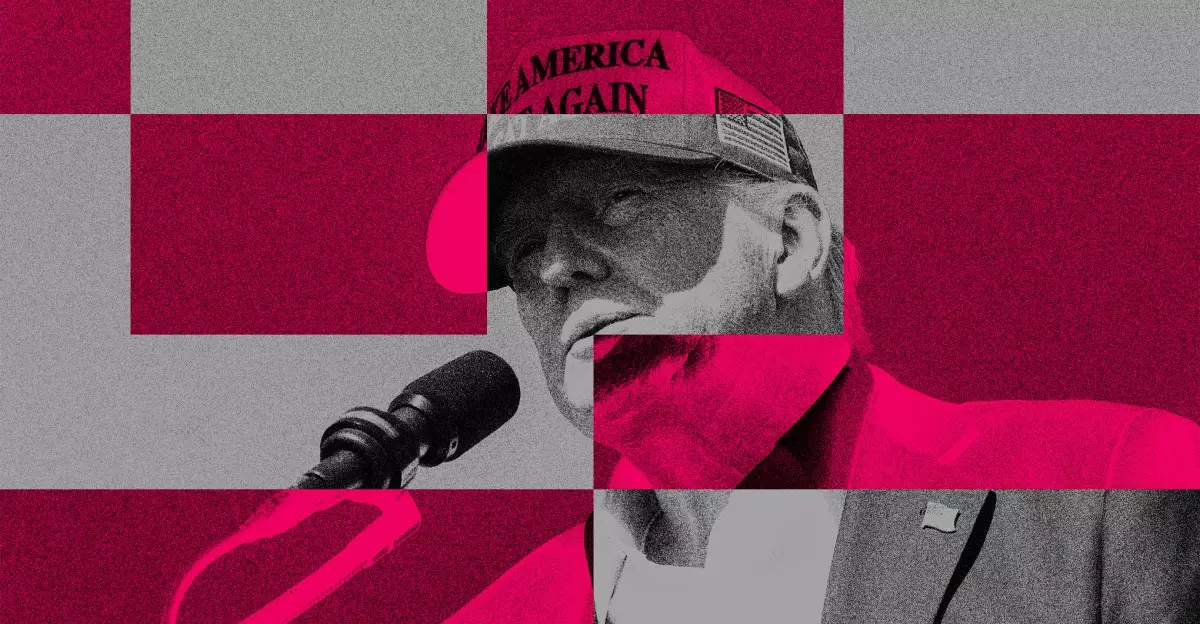The recent actions of the Trump administration surrounding TikTok reveal a complex dance of strategic ambiguity and political branding that exposes the porous boundaries between policy and influence. Despite lingering tensions with ByteDance, the Chinese parent company, and ongoing legal battles to enforce a nationwide ban, the government paradoxically maintains a presence on the platform, exemplified by the creation of the @WhiteHouse account. This move sends a clear signal: the administration recognizes TikTok’s unparalleled power in shaping public discourse and political narratives—so much so that it refuses to completely abandon it, even amidst regulatory uncertainty and diplomatic conflicts.
By opening a TikTok account without a definitive deal with ByteDance, the Trump administration underscores a dangerous duality. On one hand, official rhetoric continues to paint TikTok as a national security threat, citing concerns over data privacy and Chinese influence. On the other hand, they leverage TikTok’s reach for political advantage, knowing that the platform’s engagement can be harnessed for messaging, propaganda, or cultivating an image of populism. This contradiction exposes not only the administration’s indecisiveness but also their tactical understanding: control is less about policies on paper and more about wielding digital tools to influence perception.
Strategic Use of TikTok: Power, Propaganda, and Public Perception
The decision to launch the White House’s TikTok account, which posted a celebratory video about Trump’s achievements, exemplifies how political figures are increasingly viewing digital platforms as crucial arenas for influence. It’s not necessarily about fostering transparency but about dominating the narrative landscape and engaging directly with the predominantly young, impressionable audience that TikTok attracts.
Moreover, the Trump campaign’s successful deployment of its own TikTok presence signals a broader shift in political communication. Unlike traditional media, which is often filtered through journalists or institutional gatekeepers, TikTok allows politicians and campaigns to bypass conventional channels and speak directly to voters. Trump’s ability to generate viral moments, bolstered by his reality TV background, has proven especially potent. The platform becomes a tool not only for campaigning but also for shaping perceptions of leadership, authenticity, and patriotism—elements that are vital for mobilizing supporter enthusiasm in the digital age.
This strategic engagement reveals an aggressive understanding of social media’s power: it’s less about strict policy enforcement and more about leveraging the platform’s characteristics to reinforce loyalty and sway undecided observers. The fact that Trump’s campaign amassed billions of views further illustrates how TikTok’s unique algorithmic environment can amplify political messaging, blurring the lines between official communication and viral entertainment.
The Irony of Control and Chaos in Digital Politics
There’s an inherent irony in the Trump administration’s approach to TikTok. While publicly framing the platform as a security menace, the government is simultaneously cultivating a digital footprint that enhances its influence and outreach capabilities. This paradox exemplifies a growing trend where political actors view social media not just as a communication tool but as a battleground for power—both in the courts and in the court of public opinion.
Furthermore, the indecision surrounding a formal deal to unwind ByteDance’s stake in TikTok or to ban it outright reflects a deeper uncertainty about technological sovereignty. The administration’s delayed efforts—multiple deadlines and shifting narratives—highlight a lack of clear strategy that ultimately undermines credibility. It suggests that their stance on TikTok is less rooted in security concerns and more in attempting to juggle intimacy with the platform’s audiences while managing diplomatic tensions with China.
In the end, the ongoing engagement with TikTok—even amid threats of bans and strict regulations—is emblematic of a broader reckoning: in the digital age, influence is currency, and control is often more about perception than policies. The Trump era’s embrace of TikTok as both a tool and a symbol gestures toward an unsettling reality where political power is increasingly rooted in online virality rather than legislative compliance or diplomatic norms. As digital platforms continue to evolve, so too will the strategies that political figures deploy—often mixing sincerity with spectacle, and regulation with manipulation.

